Commonly Confused Adjectives with Explanations
.png)
Some English adjectives may be confusing due to their spelling, meaning and pronunciation. This article will help you to avoid any possible mistakes by describing meanings and a way to use each adjective correctly.
Many — Much
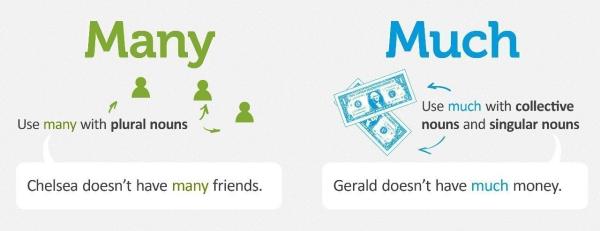
Although these two quantifiers sound similar, function similarly, and mean similar things, they cannot be used interchangeably. Use “much” with collective nouns and singular nouns. Use “many” with plural nouns. Here's an example:
Gerald doesn't have much money.
Chelsea doesn't have many friends.
Few — A Few
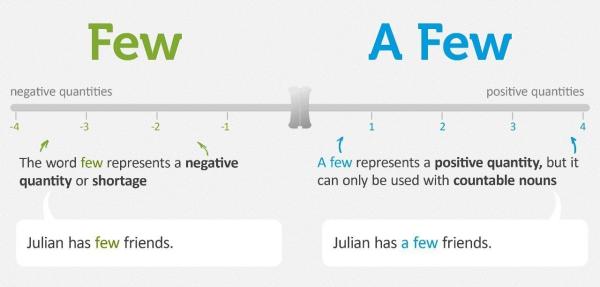
“A few” represents a positive quantity, but it can only be used with countable nouns. The word “few” represents a negative quantity or shortage.
Julian has a few friends.
Julian has few friends.
Little — A little
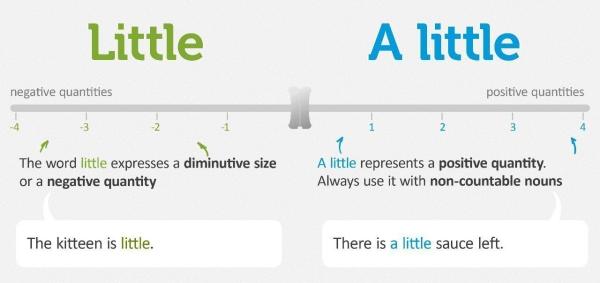
Like “few” and “a few”, the quantifiers “little” and “a little” represent negative and positive quantities. Always use a little with non-countable nouns. The word little expresses a diminutive size or a negative quantity. Here are a few examples:
The kitten is little.
Celeste had little interest in history.
There is a little sauce left.
Would you like a little more?
Each — Every
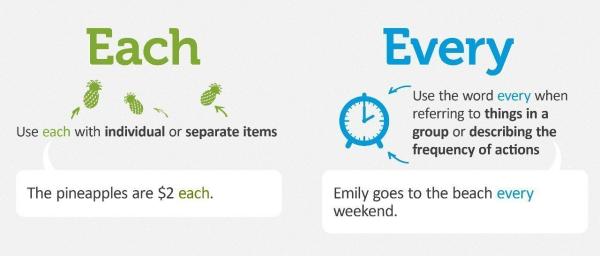
Use “each” with individual or separate items. Use the word “every” when referring to things in a group or describing the frequency of actions.
The pineapples are $2 each.
Each student received a handout.
Emily goes to the beach every weekend.
Wounded — Injured — Hurt
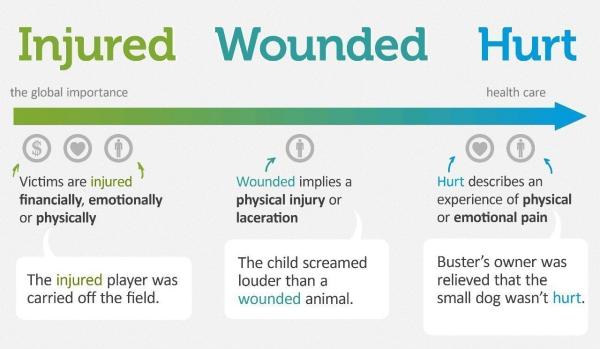
The words “wounded”, “injured”, and “hurt” has subtle differences and unique connotations. Victims are “injured” financially, emotionally, or physically. “Wounded” implies a physical injury or laceration. “Hurt” describes an experience of physical or emotional pain.
The child screamed louder than a wounded animal.
The injured player has been carried off the field.
Buster's owner was relieved that the small dog wasn't hurt.
Farther — Further
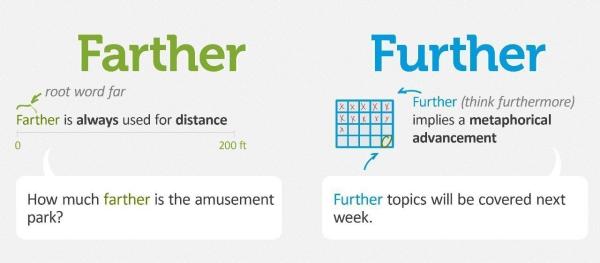
“Farther” (the root word is “far”) is always used for distance, and “further” implies a metaphorical advancement. Here are a few examples:
How much farther is the amusement park?
Further topics will be covered next week.
Less — Fewer
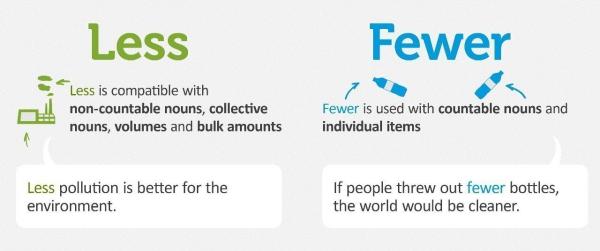
“Less” is compatible with non-countable nouns, collective nouns, volumes, and bulk amounts. “Fewer” is used with countable nouns and individual items. Here are several examples:
Less pollution is better for the environment.
If people threw out fewer bottles, the world would be cleaner.
Last — Latter — Latest
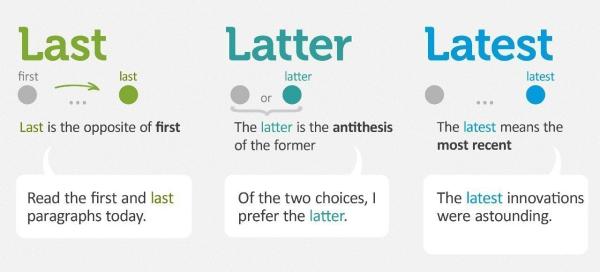
“Last” is the opposite of “first”, the “latter” is the antithesis of “former”, and “the latest” means “the most recent”. Here are several examples:
Read the first and last paragraphs today.
Of the two choices, I prefer the latter.
The latest innovations were astounding.
High — Tall
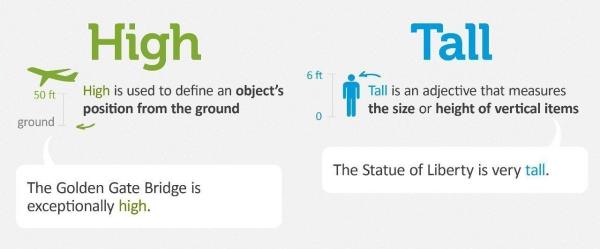
“Tall” is an adjective that measures the size or height of vertical items, such as people and buildings. “High” defines an object's position from the ground, including bridges, planes, shelves, and horizontal things. Here are two examples:
The Statue of Liberty is very tall.
The Golden Gate Bridge is exceptionally high.
Sick — Ill
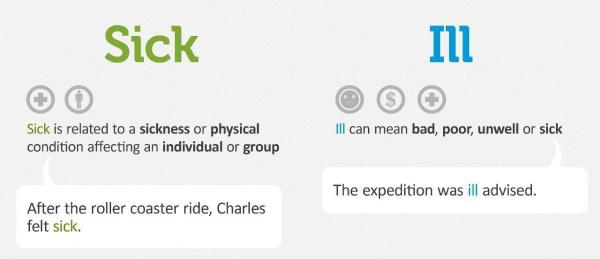
“Sick” is related to sickness or a physical condition, affecting an individual or a group. “Ill” can mean “bad”, “poor”, “unwell”, or “sick”.
After the roller coaster ride, Charles felt sick.
The expedition was ill-advised.
Follow the link to find out more about commonly used English proverbs.
Оставить комментарий
Для комментирования необходимо войти через ![]() Вконтакте
Вконтакте
